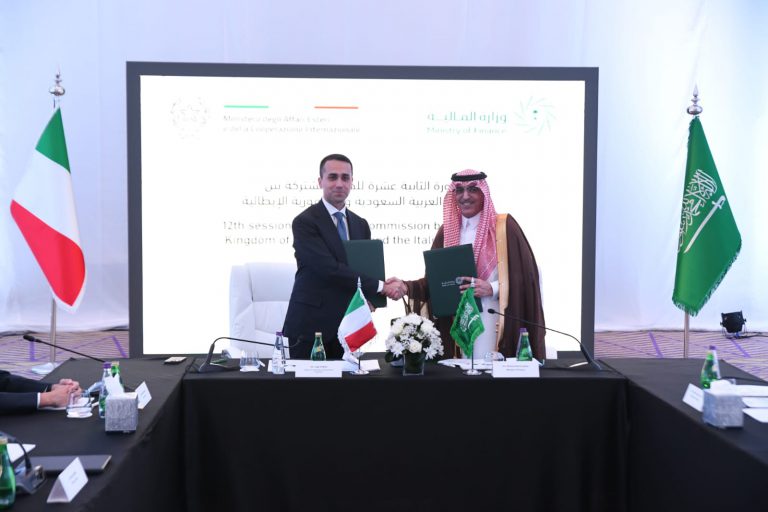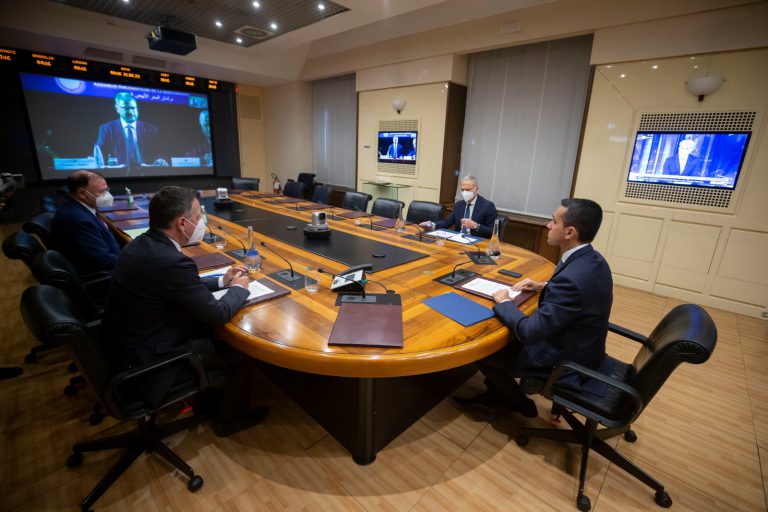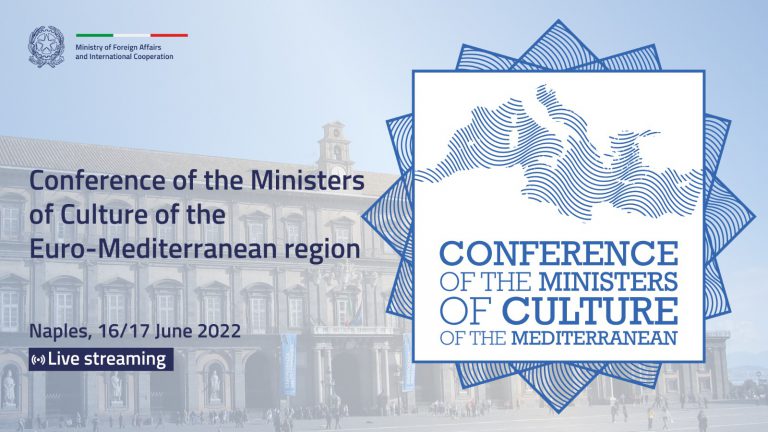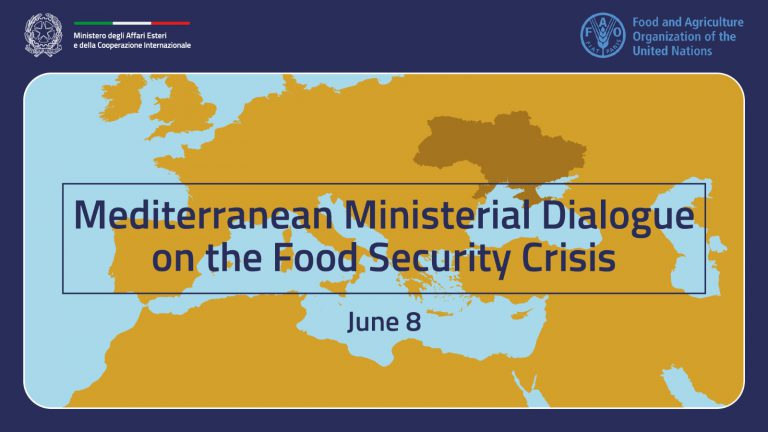If the State of Israel has got friends around the world, Giulio Terzi is probably among the most prominent. While posted as Italian Ambassador to Israel during the second Intafada, he grew to understand and love the country, opened the doors of his home to endless events and initiatives, helped to demonstrate solidarity and strove to promote closer relations between Israel and Europe. Today as Minister for Foreign Affairs of Italy, he returns as a guest to that same house in Ramat Gan, home of the current Italian ambassador Francesco Talo’.
Terzi, 66 years old, who in the meantime has also been Ambassador of Italy to the UN and to Washington, was recently recalled to Rome to fill the post of foreign minister in the government of technocrats led by Mario Monti that replaced the collapsed government of Silvio Berlusconi. Today, accompanied by Israeli Ambassador to Italy Naor Gilon, he will hold a series of meeting with President Shimon Peres and the leaders of the Israeli government. Tomorrow he will be meeting with the Palestinian leadership and then go on to meet, as other European foreign ministers have already done, with Egypt’s new President Muhammad Mursi. “I am very moved to be back in Israel as Minister for Foreign Affairs”, Terzi says on the eve of his arrival in Israel.
“Israel has enormous importance in Italian foreign policy. Over the past decade that policy has considered the solid and highly developed Israeli democracy a value not only for the region but for the entire international community. Joining my personal sentiments with those of my position, the importance of deepening relations and the desire for partnership have increased, particularly in view of the changes and developments in the region over the past two years”.
His rapid leap from Ambassador in Tel Aviv to the UN and later the Embassy in Washington, strengthened Terzi’s relationship with Jewish organizations in the United States. Once appointed foreign minister it may have seemed that this Jewish embrace could have become an impediment for someone charged with global policy-making that also included the Arab world, but Terzi firmly protests: “I have close and excellent relations with the Arab world”, he asserts. “Some of my best friends hold government posts in Arab countries. I have never transformed my friendship with Israel and the Jewish people into a statement of rejection of my friendship with the Arab world and Islam”.
Tensions between an Israeli Prime Minister and an American president are nothing new to Minister Terzi. In their meeting this morning, Prime Minister Netanyahu may hear his Italian guest speak of his stint as Ambassador in Washington and how he had to manage the shaky relations between then Premier Berlusconi and President Obama. Netanyahu, who criticized the international community this week for not imposing a red line on Iran, may be told that “the red line is an barrier to Iranian nuclear potential”.
It is clear from what Terzi says that he is opposed to an Israeli offensive at this time, and believes that economic sanctions are still the right strategy. “The sanctions on Iranian oil have, in my opinion, become a turning point”, he explains. “Along with the banking sanctions, they are having a dramatic impact on the Iranian economy and have forced the regime into dialogue. No one knows exactly when Iran will manage to make real nuclear weapons. The determination of Europe and the trans-Atlantic pact to impede that possibility is, in my view, very high. Economic and political pressure on Iran needs to increase, expanding what has already been agreed on with countries such as Russia and China, and involving not only countries of the region such as Turkey, but also Brazil and India, in isolating Iran to the point where it no longer has a choice”.
You are aware of the Israeli people’s fears of being left alone in the battle against Iran.
“Israel’s security and right to life are indivisible from Italy’s security and existence. We cannot imagine an offensive, or worse, an appeal for the destruction of Israel, without fearing for our own security. Whenever we negotiate or discuss Iran’s military nuclear programme, we do so in the knowledge that this delicate subject concerns our own safety as well”.
You use analogous terms when you speak of the possibility of a terrorist attack on Israeli and Jewish targets in Italy, as in the example of Burgas in Bulgaria.
“Terrorism never sends advance warnings, otherwise it wouldn’t be terrorism as we know it”, the minister with consternation. “In our fight against terrorism we are investing in prevention, in assistance to countries that share our goals”.
Why not add Hezbollah to Europe’s list of terrorist organisations?
“The addition of Hezbollah to the European list of terrorist organisations is a possibility, if material proof can be produced. In 2003, when we added Hamas to that list, the issue was highly complex in terms of its diplomatic and legal aspects. Adding Hezbollah would be even more complex, given the nature of the organisation’s activities”.
Minister Terzi spends a lot of time on the Middle East, especially the events in Syria. I ask whether the international community has failed in dealing with events there, and the Italian minister stops a moment, and honestly admits his reservations: “The international community has not yet been able to resolve the situation in Syria, but the situation could have been much worse without it. We aren’t there to observe the Arab Spring through a window. It is possible that rapid solutions cannot be found to all the crises that have erupted, because all conditions are not equal”.
It would seem that the free world had lost control of events in the international arena, in light of the horror of Iran and its friends’ participation last week at the conference of non-aligned countries.
“I am hoping for a more decisive role for Europe, which would mean a common foreign and security policy. We have made much progress in that sense. If I had to point out a shortcoming, it would be that”.
How will Italy vote if the UN General Assembly discusses the Palestinian request to unilaterally found a State?
“I am hoping the question will not be put to a vote. In my estimation, in light of regional developments, a new dynamic is needed in resolving the Israeli-Palestinian conflict”.
The day after tomorrow, the Italian Minister for Foreign Affairs may already convey messages from Jerusalem to Cairo, his next destination. In his previous meeting with the Egyptian president, prior to the terrorist incident in the Sinai, he took the opportunity to present Italy’s stance. “We place great importance on our relations with the new Egypt, with the new Libya and – hopefully before long – also with the new Syria”, he says. “In our meeting, Mursi offered a pragmatic approach and a willingness to foster the common interests of Egypt and Europe on the basis of the rule of law and economic assurances. When I put the situation in the Sinai to him I had the sensation that he was determined to ensure Egypt’s control of that territory. It was an extremely positive meeting”.
Do not Mursi’s trip to Teheran and the deterioration of conditions for women and minorities in Egypt concern you?
“We are anxious to clarify that our foreign policy’s basic underlying principles are respect for international accords, relations with our neighbours and respect for minorities. Egyptian diplomacy finds itself in close continuity with the current administration. We are going to have to see the real outcome of their decision to participate in the conference of non-aligned countries and the clear position expressed by Syria”.
Elections are to be held in Italy next year, and Italy’s government of technocrats will be replaced by one of politicians. To Israelis who dream of a similar situation, Terzi explains that the Italian model is based on a government formed in the shadow of a looming and unprecedented crisis. “The citizens of Italy will warm back up to politics ,or else will take their distance, depending on whether something changes in the system before the elections and reforms are enacted both against corruption, and at the same time, in the justice system”.
What are you planning to do after the elections?
“My only hope is to be able to have some time to take my twins to the playground”.







